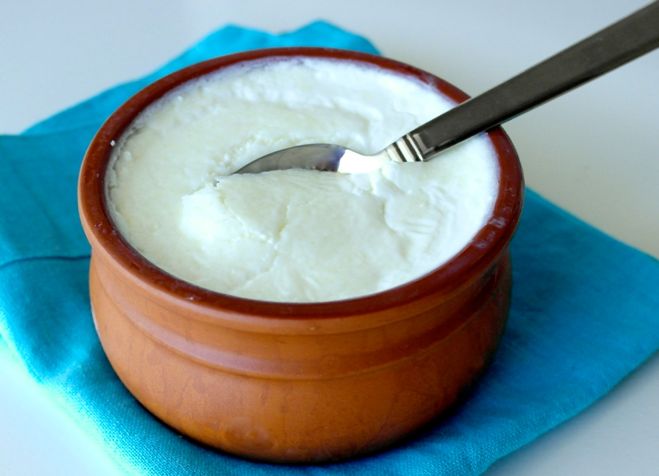Exploring the Rich Flavors of Greek Cuisine
Index
- The Mediterranean Diet and Health Benefits
- Key Ingredients and Flavors
- Iconic Greek Dishes
- Regional Specialties
- Bringing the Best of Greek Cuisine to Your Doorstep
Greek Cuisine - A Culinary Journey

Greek cuisine is a treasure trove of vibrant flavors, fresh ingredients, and culinary traditions dating back thousands of years. Rooted in the Mediterranean diet, Greek food showcases the simplicity of its ingredients, highlighting their natural qualities and combining them in delightful ways. From savory dishes to mouthwatering desserts, Greek cuisine offers a diverse array of tastes that reflect the country's rich history and cultural heritage.
The Mediterranean Diet and Health Benefits:
When it comes to healthy and delicious eating, the Mediterranean diet is often hailed as a gold standard. With its emphasis on fresh, whole foods and a balance of nutrients, this dietary pattern has been associated with numerous health benefits. At the heart of the Mediterranean diet lies Greek cuisine, which showcases a rich tapestry of flavors and ingredients that nourish both body and soul.

Greek cuisine forms an integral part of the Mediterranean diet, and its unique characteristics contribute to the health-promoting qualities of this eating pattern. By embracing Greek cuisine, we can unlock a treasure trove of health benefits and enjoy a culinary journey that delights our taste buds.
One of the key elements of Greek cuisine is the abundant use of fresh fruits and vegetables. From ripe tomatoes and crisp cucumbers to vibrant leafy greens, Greek dishes are brimming with colorful produce. These vegetables are rich in vitamins, minerals, and antioxidants, which play a vital role in supporting overall health and protecting against chronic diseases.
Greek cuisine also features a variety of legumes, such as chickpeas, lentils, and beans. Legumes are excellent sources of plant-based protein, fiber, and essential nutrients. They have been linked to various health benefits, including improved heart health, weight management, and blood sugar control.
The Mediterranean diet is renowned for its incorporation of olive oil, a staple of Greek cuisine. Olive oil is a healthy source of monounsaturated fats, which have been associated with a reduced risk of heart disease and improved longevity. Its use in Greek cooking adds depth of flavor and richness to dishes while providing health-promoting properties.

Key Ingredients and Flavors:
At the core of Greek cuisine are a few key ingredients that form the foundation of countless dishes. These ingredients are responsible for the distinctive flavors that define Greek food and make it so beloved around the world.

Feta cheese holds a special place in Greek cuisine, captivating taste buds with its distinctive flavor and crumbly texture. This beloved cheese has a rich history and a unique production process that contributes to its unrivaled taste. Let's explore the wonderful world of feta cheese and discover why it is adored by cheese enthusiasts worldwide.
Originating in Greece, feta cheese is traditionally made from sheep's milk or a combination of sheep's and goat's milk. It is believed to have been produced for over 6,000 years, making it one of the oldest cheeses in the world. Feta is closely tied to Greek culture and is protected by European Union regulations, ensuring that authentic feta cheese is made following specific guidelines.
The production of feta cheese involves several key steps. First, the milk is curdled using rennet, a natural enzyme, to separate the curds from the whey. The curds are then cut into small pieces and allowed to rest, allowing the whey to drain off. The curds are then transferred to molds, where they are pressed to remove excess moisture and give the cheese its characteristic shape. After the pressing process, the cheese is salted and left to mature in brine for several weeks, developing its unique flavor profile.
What sets feta cheese apart is its tangy and salty taste, which is balanced by a creamy and crumbly texture. Its flavor can range from mildly tangy to quite sharp, depending on the age and production methods. The brining process adds a salty element that complements the cheese's tanginess, creating a harmonious combination of flavors.
Feta cheese's versatility in the culinary world is unmatched. It can be enjoyed in various ways, adding a savory touch to both classic and modern dishes. Crumble feta over crisp salads for a burst of saltiness and creaminess, or pair it with ripe tomatoes and fresh herbs for a traditional Greek salad. The cheese also shines in baked dishes like spanakopita (spinach pie) or tiropita (cheese pie), where it adds a delightful richness and tang to the filling. Feta cheese can even be enjoyed on its own, served with olives, crusty bread, or drizzled with olive oil for a simple and satisfying snack.
With its distinct flavor, crumbly texture, and rich history, feta cheese is truly a culinary treasure. Its presence in Greek cuisine and its popularity worldwide is a testament to its exceptional taste and versatility. Whether used as a key ingredient in traditional recipes or incorporated into innovative creations, feta cheese continues to captivate cheese lovers, transporting them to the sun-drenched landscapes of Greece with each delectable bite.
So, the next time you crave the flavors of the Mediterranean, embrace the allure of feta cheese. Discover its unique characteristics, experiment with its diverse applications, and let this savory Greek delight elevate your culinary experiences to new heights.

Greek yogurt, a beloved staple of Greek cuisine, has gained immense popularity worldwide for its creamy texture and tangy taste. Made by straining regular yogurt to remove the whey, Greek yogurt boasts a thicker consistency and a higher protein content compared to traditional yogurts.
One of the reasons Greek yogurt has become a go-to choice for many is its impressive health benefits. It is rich in probiotics, which are beneficial bacteria that promote a healthy gut flora and aid digestion. These probiotics contribute to a strong immune system and may even help improve nutrient absorption. Additionally, Greek yogurt is an excellent source of calcium, essential for maintaining strong bones and teeth.
The higher protein content in Greek yogurt is another factor that sets it apart. Protein is an important macronutrient that helps to build and repair tissues, supports muscle growth, and keeps you feeling full and satisfied for longer periods. Including Greek yogurt in your diet can be especially beneficial for individuals following a high-protein or vegetarian lifestyle.
Greek yogurt's versatility makes it a favorite among food enthusiasts. Whether enjoyed on its own, topped with fresh fruits and a drizzle of honey, or used as an ingredient in both sweet and savory dishes, it adds a creamy and tangy element to various culinary creations. In breakfast bowls, it provides a nutritious base for granola, nuts, and seeds, offering a balanced and energizing start to the day. Greek yogurt can also be used as a substitute for sour cream or mayonnaise in dressings, dips, and sauces, providing a healthier option without compromising on taste.
Its rich flavor and health-promoting properties have made Greek yogurt a favorite choice among health-conscious individuals. It is a versatile ingredient that can be incorporated into smoothies, parfaits, baked goods, and even savory dishes like tzatziki sauce. The possibilities are endless when it comes to utilizing Greek yogurt in the kitchen.
Whether you are seeking a nutritious snack, a protein-packed breakfast, or a versatile ingredient to enhance your culinary creations, Greek yogurt is an excellent choice. Its creamy texture, tangy taste, and impressive health benefits make it a delightful addition to any diet. So, indulge in the goodness of Greek yogurt and savor the numerous ways it can elevate your meals while nourishing your body.

Olives and olive oil have long been treasured as essential components of Mediterranean cuisine, with their rich flavors and health-promoting properties. From the sun-drenched groves of Greece to the rolling hills of Italy and beyond, these culinary gems have been revered as the "liquid gold" of the Mediterranean region.
Olives, whether green or black, are a hallmark of Mediterranean gastronomy. Bursting with unique flavors and a satisfying texture, they add depth and complexity to a wide range of dishes. Beyond their culinary appeal, olives are also packed with nutrients and antioxidants, including vitamin E and polyphenols, which offer numerous health benefits. From reducing inflammation to supporting heart health and even promoting healthy aging, olives are a true powerhouse of nutrition.
Olive oil, derived from the pressing of olives, is not only a staple in Mediterranean cooking but also renowned for its exceptional taste and health benefits. Extra virgin olive oil, in particular, is treasured for its superior quality and richness in antioxidants. This golden elixir not only adds a distinctive flavor to dishes but also provides a host of health advantages. From its ability to reduce the risk of heart disease and improve cholesterol levels to its anti-inflammatory properties and potential anticancer effects, olive oil truly stands out as a cornerstone of a healthy diet.
Beyond its culinary uses, olive oil extends its benefits to skincare and beauty regimens. With its moisturizing properties and high content of antioxidants, it nourishes the skin, leaving it supple and radiant. Olive oil has been used for centuries in natural beauty remedies, serving as a testament to its versatility and effectiveness.
Whether drizzled over a fresh salad, used as a dip for crusty bread, or incorporated into marinades and dressings, olive oil adds a touch of Mediterranean charm to every dish. Its robust flavor, combined with its healthful attributes, has made it a go-to choice for health-conscious individuals and chefs worldwide.
In conclusion, olives and olive oil are truly treasures of Mediterranean cuisine. With their unique flavors, nutrient-rich profiles, and countless health benefits, they embody the essence of a wholesome and delicious diet. So, let us celebrate the "liquid gold" of olives and olive oil, savoring their culinary delights and embracing the Mediterranean tradition of enjoying these remarkable gifts from nature.

Greek cuisine is renowned for its exquisite flavors and aromatic dishes, thanks in large part to the generous use of herbs and spices. From the sun-drenched hillsides of Greece to your kitchen, these culinary treasures bring a touch of the Mediterranean to every meal, tantalizing the senses and elevating your culinary creations.
One of the most iconic herbs in Greek cuisine is oregano. With its robust and earthy flavor, it adds depth to various dishes, including salads, grilled meats, and roasted vegetables. Oregano is not only a culinary delight but also a powerhouse of antioxidants, believed to possess antimicrobial and anti-inflammatory properties.
Mint, another popular herb in Greek cuisine, offers a refreshing and cooling sensation. It is widely used in traditional Greek recipes, such as tzatziki and Greek salads, lending a bright and invigorating flavor. Mint is also known for its digestive properties and its ability to soothe an upset stomach.
Basil, with its sweet and aromatic profile, is a staple in Greek cooking. Whether used fresh or dried, basil adds a delightful fragrance to sauces, soups, and classic Greek dishes like moussaka. Beyond its culinary merits, basil is believed to have antibacterial properties and is a rich source of vitamin K, essential for bone health.
Dill, known for its delicate and slightly tangy taste, is another herb commonly found in Greek recipes. It pairs perfectly with fish and seafood, enhancing their natural flavors. Dill is not only a flavorful addition but also a good source of antioxidants, promoting overall health and well-being.
Thyme, with its earthy and slightly floral notes, is a versatile herb that shines in Greek cuisine. It complements a wide range of dishes, from roasted meats to vegetables and hearty stews. Thyme is recognized for its antimicrobial properties and is often used to support respiratory health.
Beyond herbs, Greek cuisine also embraces a medley of spices that add depth and complexity to dishes. Cinnamon, a warm and aromatic spice, is often used in both sweet and savory Greek recipes, imparting a unique and comforting flavor. Cinnamon has also been associated with various health benefits, including blood sugar control and anti-inflammatory properties.
Paprika, whether sweet or smoked, is a popular spice that lends a vibrant red color and a mild, smoky taste to dishes. It is used in traditional Greek dishes like stuffed peppers and savory spreads, adding a touch of warmth and complexity.
These are just a few examples of the delightful herbs and spices that make Greek cuisine a true culinary adventure. From the timeless classics like oregano and basil to the lesser-known treasures like dill and thyme, Greek herbs and spices awaken the senses and transport you to the sun-soaked landscapes of the Mediterranean. So, explore the vibrant world of Greek herbs and spices, and let their enchanting flavors awaken your taste buds and inspire your culinary endeavors.
Iconic Greek Dishes:
Greek cuisine is renowned for its iconic dishes that have become synonymous with Greek culture and hospitality. These dishes showcase the unique flavors, ingredients, and cooking techniques that make Greek food so memorable.

One such dish is moussaka, a flavorful casserole made with layers of eggplant, ground meat (usually lamb or beef), and a creamy béchamel sauce. Moussaka is often considered Greece's national dish and is a must-try for anyone exploring Greek cuisine.

Souvlaki, another Greek favorite, consists of skewered and grilled pieces of marinated meat, usually pork or chicken. It is commonly served with pita bread, tzatziki sauce, and a side of Greek salad. Souvlaki is a quintessential street food in Greece and offers a satisfying and flavorful meal.

Dolmades, or stuffed grape leaves, are a popular appetizer in Greek cuisine. They are made by wrapping a mixture of rice, herbs, and sometimes meat in tender grape leaves. Dolmades are typically served cold or at room temperature and are a delightful combination of flavors and textures.

Baklava, a sweet pastry made of layers of filo dough, nuts, and honey syrup, is a dessert that exemplifies the indulgent side of Greek cuisine. Its rich and sweet flavors, combined with a crispy texture, make it a beloved treat for locals and visitors alike.
Regional Specialties:
Greek cuisine is not limited to national dishes; it also boasts a variety of regional specialties, each with its own unique flavors and ingredients.
CRETE: In the island of Crete, for example, you'll find dakos, a traditional Cretan salad made with barley rusk, tomatoes, feta cheese, and olive oil. The rusk provides a satisfying crunch, while the combination of ingredients creates a harmonious blend of flavors.
MACEDONIA: In the northern region of Macedonia, you'll encounter the famous dish called moussaka tou fournou. This variation of moussaka features potatoes instead of eggplant and is baked to perfection, resulting in a hearty and comforting dish.
PELOPONNISOS: In the Peloponnese region, you'll discover the renowned dish of kalamata chicken. This succulent and flavorful chicken dish is prepared with juicy Kalamata olives, aromatic herbs like rosemary and thyme, and a drizzle of extra virgin olive oil. The combination of these ingredients creates a tantalizing taste experience that represents the essence of Greek cuisine.
SANTORINI: Venturing to the island of Santorini, you'll be captivated by the iconic dish of fava. This traditional Santorinian specialty is made from yellow split peas, simmered to a creamy consistency and infused with olive oil, garlic, and lemon juice. The result is a smooth and velvety texture with a burst of citrusy flavors, making it a perfect appetizer or accompaniment to main courses.
EPIRUS: In the region of Epirus, you'll encounter the delightful pie known as pita. Made with flaky phyllo dough and filled with a variety of ingredients such as cheese, spinach, or meat, pita showcases the versatility and creativity of Greek cuisine. Each bite offers a delightful combination of textures and flavors, satisfying both the savory and indulgent cravings.
CYCLADES: Exploring the cuisine of the Cyclades, you'll be introduced to the classic dish of souvlaki. Marinated pieces of tender meat, usually pork or chicken, are skewered and grilled to perfection, then wrapped in warm pita bread and garnished with fresh tomatoes, onions, and tzatziki sauce. This beloved street food epitomizes the simplicity and deliciousness of Greek cuisine.
RHODES: Heading to the island of Rhodes, you'll encounter the famous dish of melekouni. This delightful treat is a combination of local honey, sesame seeds, almonds, and spices, all bound together in a chewy, nougat-like confection. Melekouni is not only a delicious sweet treat but also holds cultural significance, as it is often served during weddings and other festive occasions.
THESSALY: In the region of Thessaly, you'll discover the beloved dish of fasolada. Known as the Greek bean soup, fasolada is a comforting and nourishing stew made with white beans, vegetables such as carrots, onions, and tomatoes, and flavored with aromatic herbs. This hearty and nutritious dish has been a staple in Greek households for generations, warming both hearts and bellies during the colder months.
LESBOS: Traveling to the island of Lesbos, you'll be introduced to the delectable sardelles pastes. These small, flavorful fish are marinated in a mixture of olive oil, lemon juice, garlic, and herbs, creating a delicious spread that is perfect for crusty bread or as a topping for salads. Sardelles pastes highlight the abundance of fresh seafood found in Greek coastal regions.
ZAGORI: In the mountainous region of Zagori, you'll be enthralled by the traditional dish of kontosouvli. This succulent roasted meat dish is typically prepared with large chunks of pork or lamb, marinated in a blend of herbs, spices, and olive oil, and slow-cooked over an open fire. The result is tender and flavorful meat, showcasing the skill and patience of Greek culinary traditions.
CORFU: Journeying to the island of Corfu, you'll encounter the renowned dish of pastitsada. This hearty pasta dish features succulent pieces of meat, often beef or rooster, simmered in a rich tomato sauce flavored with spices like cinnamon, cloves, and allspice. Pastitsada is typically served over a bed of pasta, creating a mouthwatering combination of flavors and textures.
MANI: Venturing to the region of Mani in the Peloponnese, you'll discover the traditional dish of spetsofai. This hearty and flavorful dish combines sausages, typically spicy pork or beef, with bell peppers, onions, and tomatoes, creating a mouthwatering medley of flavors. Spetsofai showcases the robust and rustic cuisine of Mani, with its emphasis on simple yet delicious ingredients.
NAXOS: Heading to the island of Naxos, you'll be delighted by the local cheese known as graviera. Made from sheep's milk or a combination of sheep's and goat's milk, graviera is a hard cheese with a rich and nutty flavor. Often enjoyed as a table cheese or melted over dishes, graviera adds a distinctive taste to various Greek recipes, making it a true culinary gem of Naxos.
THRAKI: In the region of Thrace, you'll encounter the famous dish of kavourmas. This specialty consists of tender and flavorful pieces of slow-cooked meat, typically pork or beef, preserved in its own fat. Kavourmas is often enjoyed as a spread on bread or used as an ingredient in other dishes, providing a unique taste and preserving tradition in Thrace.
IKARIA: Traveling to the island of Ikaria, you'll be introduced to the delightful dish of spetsofoula. These small, savory pies are filled with a mixture of local greens, herbs, and feta cheese, baked to golden perfection. Spetsofoula exemplifies the use of fresh and seasonal ingredients in Ikarian cuisine, offering a delicious taste of the island's culinary heritage.
EYBOEA: In the region of Euboea, you'll discover the traditional dessert known as tiganites. These fluffy pancakes, similar to the more well-known Greek loukoumades, are often served for breakfast or as a sweet treat. Tiganites are made with a batter of flour, yeast, sugar, and warm water, then fried until golden and crispy. They are typically drizzled with honey and sprinkled with cinnamon, creating a delectable indulgence that captures the essence of Euboea.

Bringing the Best of Greek Cuisine to Your Doorstep:
Whether you're a seasoned lover of Greek cuisine or eager to embark on a culinary adventure, exploring Greek flavors is an experience like no other. While visiting Greece offers an immersive journey into the country's culinary traditions, you can also enjoy Greek cuisine from the comfort of your own home.
Thanks to online retailers like Bakaliko, you can discover a wide range of Greek products and ingredients that allow you to recreate authentic Greek dishes in your kitchen. From olive oil and feta cheese to traditional herbs and spices, Bakaliko brings the best of Greek cuisine to your doorstep.
Indulging in Greek cuisine is not just about the flavors and aromas—it's about immersing yourself in a rich cultural heritage that spans millennia. So gather your ingredients, try out traditional recipes, and let the taste of Greece transport you to the sun-soaked shores of the Mediterranean.
 Skip to content
Skip to content